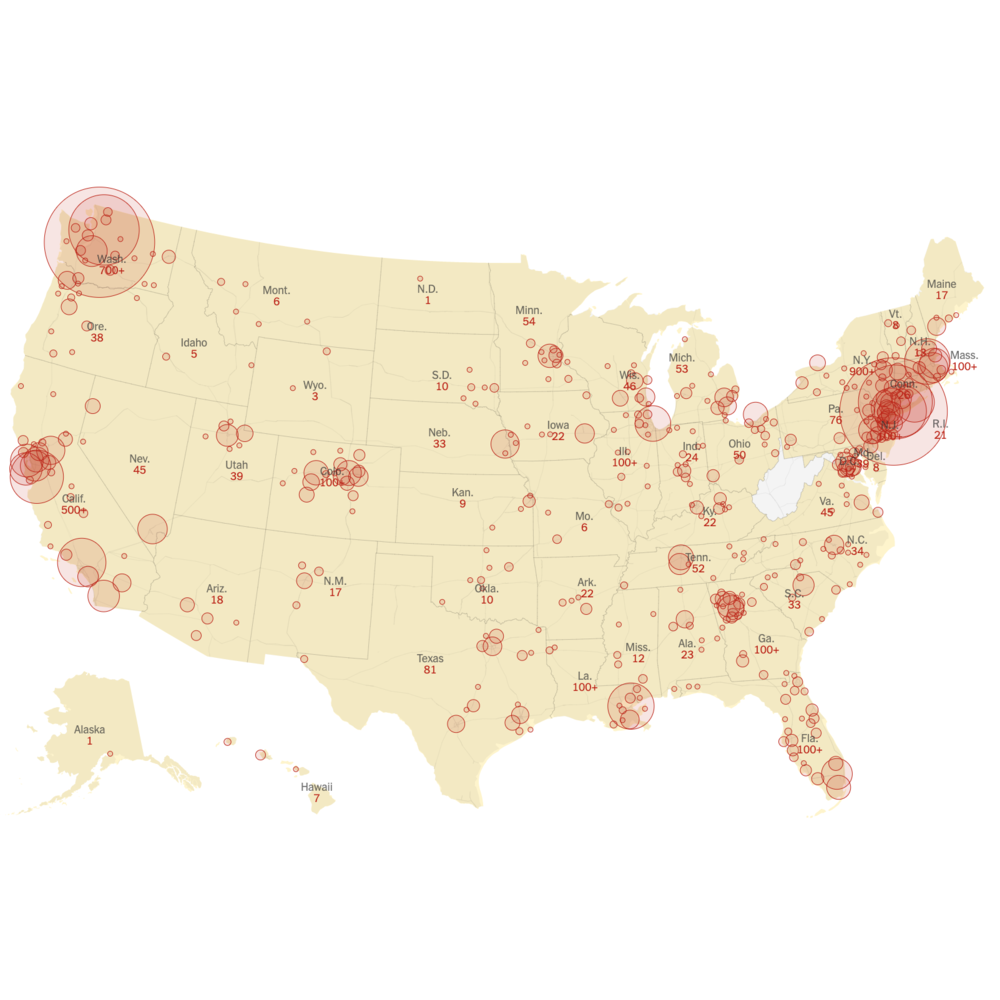
Blog
A Call To Preserve Humanity in our Workplace
We’re over half a year into the world of remote work, and thousands of articles have been published with advice on how to work from home. Unfortunately, too many of those articles focus on surface-level advice–”how to Zoom,” for example–and not on how to work effectively from home, especially during a pandemic.
When COVID-19 first hit, working from home was about surviving, not thriving. But now that remote work has become the new, semi-permanent (if not actually permanent) reality for so many of us, it’s time to shift the focus to thriving: working well from home, sustainably.
Those two concepts–working well and working sustainably–are important any time, pandemic or not. But in a year of major global upheaval to the way we live and work, the dangers of burnout become even more perilous. We’ve talked about burnout ad nauseum, but it’s never been a more serious threat than during COVID-19.
This fall, we’ll be presenting a series of articles on how to work effectively from home. Effective remote work requires a shift in how managers manage and how team members approach their workdays. Above all, we know from the last seven-plus months that working remotely during a pandemic can get a little messy.
We all want to work as well as possible, and with a few changes to how we think about and approach the workday, working as well as possible is possible.
Before we launch into the “how” of working well remotely (both during and after the pandemic), we need to talk about restoring humanity to our workday.
An Open Letter On Race, Justice, And Taking Action
We are thrilled to bring to you this open letter drafted by Nicole, our resident data officer and a black woman, addressing the “but now what?” questions many of us are asking in the wake of a national uprising following the killing of George Floyd in Minneapolis. We are indebted to Nicole for her experience, wisdom and willingness to lead on an issue critical to the future of our families, communities, workplaces and nation.
Over the past week, I have received an outpouring of love and encouragement from my white friends and family. I genuinely appreciate your support and am thankful that you are willing to stand with my family.
However, standing with me cannot be all that you do. Loving me and my family is simply not enough. Love alone is not going to change the deeply rooted, structural issues that we face.
You must be willing to do the work required to bring about sustainable change.
Some of you have asked about the purpose of the protests and about what comes next. This movement is not just about the murders of George Floyd, Breonna Taylor, Tony McDade, and Ahmaud Arbery. It is not solved after a handful of officers are removed from their positions and held accountable by the justice system. This is about the countless (often nameless) people who have experienced government-sanctioned violence.
This is about making sure that our children and grandchildren are not dealing with these same experiences and the collective trauma that comes with them.
Some of you have asked me what you can do. I believe that we are in a unique moment in history where we can push over the threshold to see real change, but we must be intentional in taking action. I outline below three things that you can do:
Don't Neglect The Mental Health Of Your Team During COVID-19
We’re now several weeks into the COVID-19 crisis, normal life as we know it has drastically changed, and everyone is feeling the strain.
Knowledge workers in particular are well positioned to keep working during a crisis–the type of work we do lends itself more easily to remote work and collaboration via technology. We are fortunate to work from our homes safely while others are on the front lines of this crisis.
Here's How To Actually Help Your Team Work Well From Home (Yes, It's Possible)
In the span of a few weeks, telework went from a maybe-effective, sometimes-possible work arrangement for a handful of people to a daily reality for most knowledge workers. And while some organizations have at least some telework experience, many don’t, and most weren’t planning on all-out teleworking, so many are learning how to manage remote employees on the fly.
There’s been ongoing debate over whether telework even works, with lots of press on companies who tried teleworking but then stopped (Yahoo and IBM, for example).
Pacing Yourself At Work In The Age Of Coronavirus
At MatchPace, we define pace as: the established rhythms and expectations of the workplace that enable organizations and their employees to work at a healthy, sustainable rate and accomplish their mission over the long term without burning out.
That might sound like a mouthful, but the reality is: pace at work matters. If you and your team aren’t running at a sustainable pace, you will burn out. Instead, your team needs to “match” your pace to your priorities, and the team needs to be operating at the same pace with each other.
But what happens in the middle of a crisis? Does a sustainable pace at work go right out the window when a pandemic hits?
Are YOU Making Your Employees Burn Out?
Last year, we did a deep dive into burnout: what causes burnout, how it affects the workplace (hint: it’s not good), and what we can do to combat it. Much of the research and recommendations around burnout deal with the individual–how to combat burnout in our personal lives, or personally at work.
But there are organizational factors when it comes to burnout, too. And if we don’t know how our workplace structures might contribute to burnout, we’ll never be able to eradicate it from the workplace.
Before we jump into what might be causing burnout at work, it’s helpful to remember just what burnout is costing not just you personally, but your organization. According to Gallup, 67% of employees say they are sometimes, very often, or always burned out at work. That leaves them 63% more likely to take a sick day, 23% more likely to visit the emergency room, and over twice as likely to leave their job when they otherwise would have stayed.
Workplace Resolutions Not Working? Try Values Instead
With the start of every year comes inevitable and constant reminders to reflect on the past year and set goals or intentions for the new one. I don’t know about you, but it felt like the dawning of a new decade amplified the hype around 2020 even more. And while we fully endorse taking the time to conduct a yearly review, set SMART goals and put systems in place to achieve them, the new year is the perfect time to step back and evaluate the foundation of every goal you have for yourself and your organization: your values.
We frequently work with clients to help them define their organizational values. If you feel like you’re setting goals at work and getting nowhere, or just setting goals for the sake of setting goals, maybe it’s a time to take a step back and focus on values instead.
But why are values so important? Does it seem like values are just words on a page that don’t actually affect your day-to-day experience in the workplace or help you achieve your organizational goals?
Values and norms, even when they’re unwritten and unspoken, have a profound effect on employee experience. They shape not just why you do the work you do, but how. They communicate to your team what is expected of them, what their employer values, how they should prioritize, and how to respond to wins and losses. Values communicate whether an organization is committed to giving employees clarity, helping them grow professionally, and what kind of work-life balance they can expect. Ultimately, establishing, communicating, and upholding workplace values can prevent burnout–or cause it.
Could you easily write down three to five values your organization holds? If not, here are some ways to begin establishing organizational values and norms or conduct a “values review” to set you up for success in 2020.
MatchPace 2019 Year In Review
MatchPace is wrapping up our second full year of operations, and as the year (and decade!) draws to a close, we are taking time to reflect on how far we have come and lessons we’ve learned.
Below is our 2019 Year-In-Review.
You're Working Hard. Are You Working Well?
When we launched MatchPace in 2016, we declared ourselves on a mission to help organizations and individuals work hard and live well. And while we still believe it’s possible to do both, we realized that for most people in the knowledge economy, working hard really means working longer. And at MatchPace, we don’t believe working longer is the solution. In fact, it’s the problem.
We’re all familiar with “the hustle,” the neverending drive to work smarter so we can work harder. But are all those productivity hacks, focus tips, and project management tools really helping us work better? Or are they simply ways for us to work more in disguise?
We just can’t live well if we’re working so much–even when we’re “working smarter”–that we end up burned out. And organizations can’t achieve their goals if their employees are burned out, either.
The solution isn’t to work harder, longer, or even smarter. The solution is to work well.










